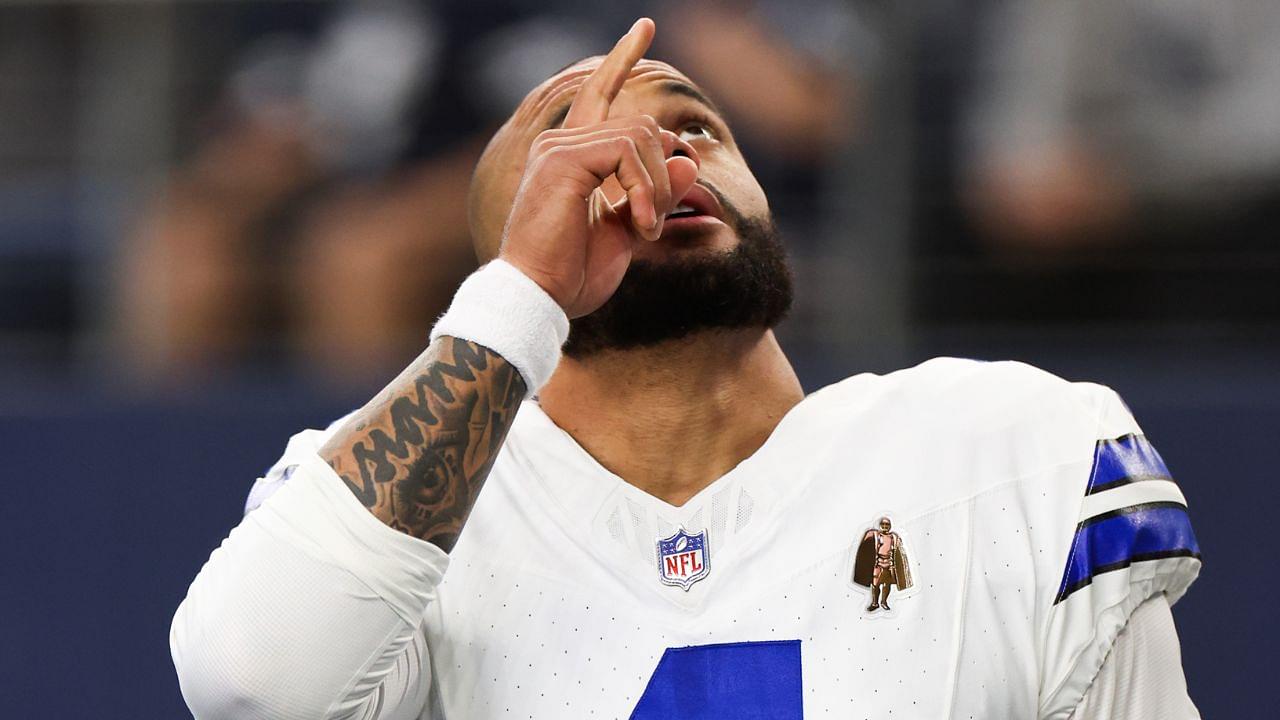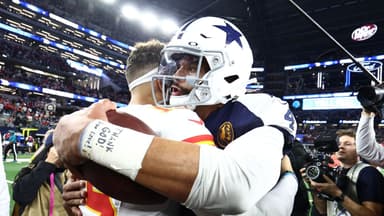The Cowboys have been dilly-dallying all offseason when it comes to QB Dak Prescott’s contract extension. And it doesn’t seem like a deal is going to get done before the regular season kicks off on September 5.
Advertisement
Amid this uncertainty surrounding contracts, NFL player turned analyst, Shannon Sharpe used a relationship metaphor to detail why the Cowboys have been delaying the extension.
He likened the scenario to a relationship where one partner stays despite being unhappy due to fear of not finding someone else. According to Sharpe, the Cowboys are hesitating to make substantial financial commitments toward Prescott because they are unsure if they even want the QB for another four years.
The former Denver Broncos star shared:
“Why would I want to invest that kind of money in you when I’m not sure I want to be with you long-term? We’ve all been there. We’re afraid to leave a relationship because we don’t know if we can find somebody better. But damn it, I’m not happy right here, right now, with what I’ve been getting.”
Through this analogy, Sharpe perfectly portrays the Cowboys’ apparent reluctance to commit to Prescott long-term.
Sharpe further explained that the Cowboys are waiting for the upcoming season to see if Prescott is even worth the long-term financial commitment.
He thinks that if Prescott manages to lead the team to the NFC Championship game, win the Super Bowl, or even clinch the MVP title—the Cowboys might be more open to offering him a long-term deal. If Prescott fails to meet their expectations by season end, the team may move on.
However, former cornerback Domonique Foxworth had a unique solution for the Cowboys’ conundrum.
Foxworth’s proposition for the Cowboys
If there are doubts about Prescott’s future with the Cowboys, the former cornerback suggested that the team could consider signing him and then trading him next season, which will not only help the franchise take advantage of Prescott’s value but will also potentially reduce his salary cap impact for the season.
Foxworth argued that successful teams typically secure their players and adapt their strategies as necessary rather than allowing contract negotiations to impede immediate success.
He feels that the way the Cowboys are currently handling Prescott’s contract, may not be conducive to improving the team in both the short term and the long term. Instead, he suggested shifting focus on signing key players and planning for adjustments for long-term success.







